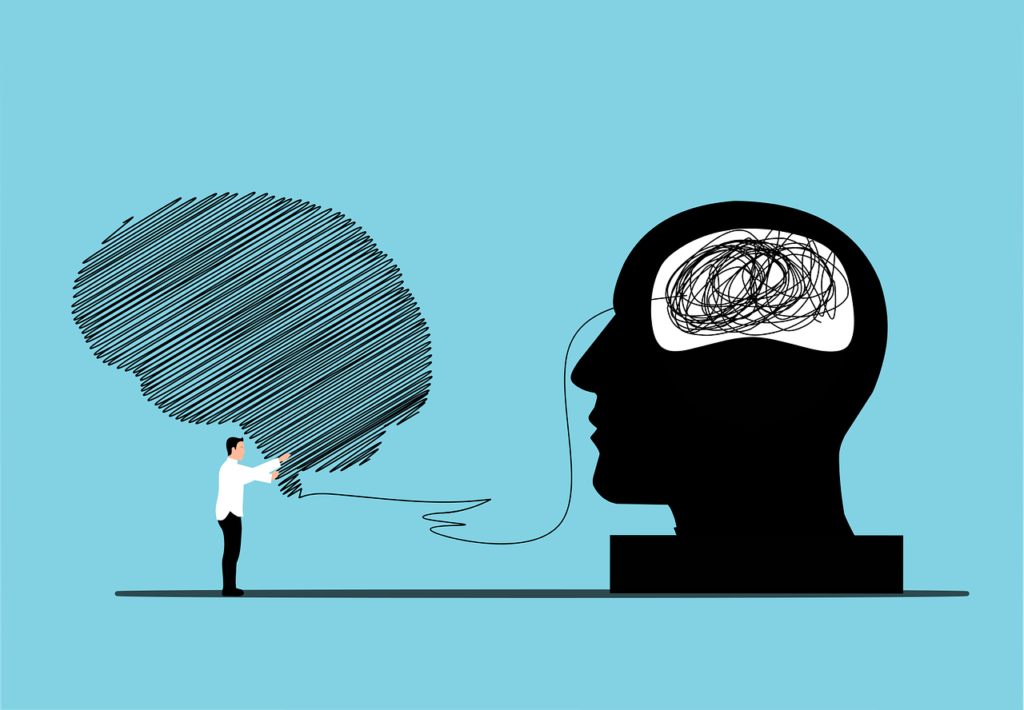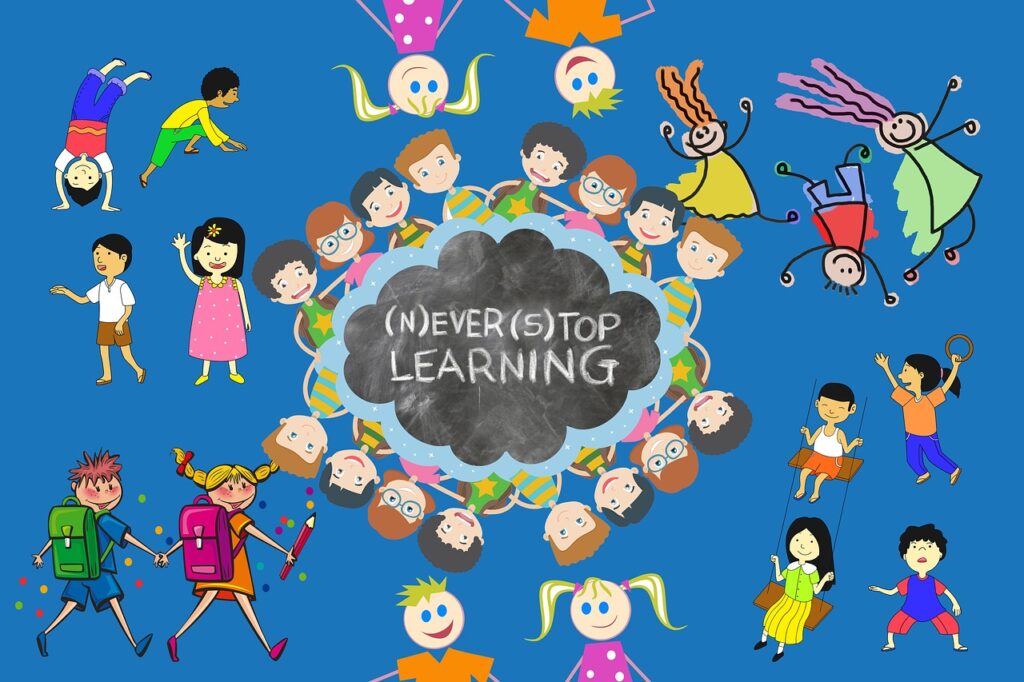Have you ever considered a career in counseling? With the increasing demand for skilled counselors projected in the coming years, it’s a field worth exploring. But what are the top counseling skills that will be valuable now and years to come?
We will discuss the importance of counseling skills and introduce the key skills that counselors will need to thrive in the future. So, if you’re interested in counseling and want to stay ahead in this evolving field, keep reading to discover the top counseling skills.
Importance of Counseling Skills
Before we dive into the top counseling skills, let’s first understand why these skills are important in the field of counseling. Counseling skills play a crucial role in helping individuals, couples, and families overcome challenges and improve their mental well-being. With effective counseling skills, counselors can:
- Build trust and rapport with clients
- Facilitate open and honest communication
- Provide emotional support and empathy
- Guide clients in setting and achieving goals
- Assess and diagnose mental health issues
- Develop personalized treatment plans
- Offer guidance and intervention strategies
- Evaluate the progress of clients
Top Counseling Skills for 2024
As the field of counseling continues to evolve, it’s important for counselors to stay updated with the latest skills and techniques. Here are the top counseling skills that will be valuable in this career:
| Skill | Description |
| 1. Active Listening | Active listening involves fully focusing on the client, understanding their perspective, and providing verbal and non-verbal cues to show interest and understanding. |
| 2. Empathy | Empathy is the ability to understand and share the feelings of another person. It involves putting yourself in the client’s shoes and providing support and validation. |
| 3. Cultural Competence | Cultural competence is the understanding and appreciation of different cultural backgrounds. It involves recognizing and respecting diversity and adapting counseling approaches accordingly. |
| 4. Problem-Solving | Problem-solving skills involve helping clients identify and address their challenges by exploring potential solutions and developing action plans. |
| 5. Ethical Practice | Ethical practice involves adhering to professional standards and guidelines, maintaining confidentiality, and ensuring the well-being and safety of clients. |
| 6. Technology Integration | With the increasing use of technology in counseling, it’s important for counselors to be familiar with digital tools and platforms that can enhance the therapeutic process. |
| 7. Self-Care | Self-care is essential for counselors to maintain their own mental and emotional well-being. It involves practicing self-reflection, setting boundaries, and seeking support when needed. |
Empathetic Communication in Counseling
Empathetic communication is crucial in counseling as it establishes a strong connection between the counselor and the client. By showing empathy, counselors can create a safe and supportive environment where clients feel understood and validated.
Active Listening and Non-Verbal Cues
Active listening and non-verbal cues are essential components of empathetic communication. Active listening involves fully focusing on the client, giving them your undivided attention, and demonstrating genuine interest in what they are saying. By actively listening, counselors can pick up on subtle cues, emotions, and concerns that clients may not explicitly express. Non-verbal cues, such as maintaining eye contact, nodding, and using appropriate facial expressions, also contribute to empathetic communication. These non-verbal cues show that the counselor is fully engaged and empathetic towards the client’s experiences.
Building Rapport and Trust
Building rapport and trust with clients is another vital aspect of empathetic communication. When clients feel comfortable and trust their counselor, they are more likely to open up and share their thoughts, feelings, and concerns. Building rapport involves creating a non-judgmental and supportive atmosphere, where clients feel heard and accepted. Trust is established through consistent empathy, understanding, and confidentiality. By building a strong rapport and trust, counselors can foster a therapeutic relationship that promotes growth and positive change.
Empathetic communication is an essential skill in counseling. It involves active listening, using non-verbal cues, and building rapport and trust with clients. By employing empathetic communication, counselors can create a safe and supportive environment where clients feel understood, validated, and empowered to explore their thoughts and emotions.

The Importance of Psychology in Counseling
Counselors play a crucial role in helping individuals navigate their mental health and emotional well-being. To effectively support their clients, counselors need to have a strong foundation in psychology.
Understanding Human Behavior and Mental Processes
Psychological knowledge allows counselors to better understand the complexities of human behavior and mental processes. It provides them with insights into the underlying causes of their clients’ challenges and helps them develop appropriate treatment plans.
For example, counselors with a solid understanding of cognitive-behavioral therapy can help clients identify and change negative thought patterns that contribute to their distress.
Applying Psychological Knowledge in Practice
Moreover, counselors can apply psychological knowledge in their practice to better help their clients. They can use evidence-based techniques and interventions rooted in psychological principles to address their clients’ specific needs.
For instance, counselors can utilize techniques such as mindfulness, relaxation exercises, and cognitive restructuring to help clients manage anxiety and stress.
Providing Personalized Support
By integrating psychological knowledge into their practice, counselors can provide a more comprehensive and effective approach to therapy. They can tailor their interventions to each individual client’s needs, taking into account their unique circumstances and personal history.
This allows counselors to provide personalized support that promotes growth, healing, and positive change.
A strong foundation in psychology is essential for counselors to effectively support their clients. By understanding different psychological theories and approaches, counselors can better grasp the complexities of human behavior and mental processes.
Applying psychological knowledge in their practice allows counselors to provide personalized and evidence-based support to help their clients achieve their therapeutic goals.
Crisis Intervention Skills in Counseling
Crisis intervention skills are crucial in counseling as they enable counselors to effectively address and respond to clients in crisis situations. These skills help counselors provide immediate support and assistance to individuals who are experiencing emotional distress, trauma, or other urgent mental health concerns. By being trained in crisis intervention techniques, counselors can offer a safe and supportive environment for clients, help them manage their emotions, and provide appropriate resources and referrals.

Effective Risk Assessment
In addition to crisis intervention, counselors also need to possess effective risk assessment skills. This involves evaluating the level of risk and potential harm to clients or others, and implementing appropriate measures to manage and mitigate these risks. By conducting thorough assessments, counselors can identify warning signs, assess the severity of the crisis, and develop a personalized plan of action to ensure the safety and well-being of the individual in crisis.
Continuing Professional Development
Staying updated on the latest crisis intervention techniques and protocols is essential for counselors to provide the best possible care to their clients. The field of counseling is constantly evolving, and new approaches and strategies for crisis intervention are being developed. By staying informed and up-to-date, counselors can enhance their knowledge and skills, ensuring that they are equipped to handle a wide range of crisis situations effectively. This ongoing professional development also allows counselors to stay abreast of emerging trends, research, and best practices in crisis intervention, enabling them to provide the highest quality of care to their clients.
Overall, crisis intervention skills and effective risk assessment are fundamental components of counseling practice. By continuously updating their knowledge and skills in crisis intervention, counselors can provide a safe and supportive environment for their clients, helping them navigate through difficult times and facilitating their path towards healing and growth.
Cultural Competence in Counseling
Cultural competence is a crucial aspect of counseling that plays a significant role in promoting effective therapy outcomes. By understanding and appreciating the diverse backgrounds and experiences of clients, counselors can create a safe and inclusive environment that fosters trust and mutual understanding. This, in turn, enhances the therapeutic relationship and allows clients to feel comfortable sharing their thoughts and feelings openly.
Developing Cultural Competence
To develop cultural competence, counselors can engage in various activities such as:
- Attending workshops, seminars, and training programs that focus on cultural awareness and sensitivity
- Actively seeking out opportunities to interact with individuals from different cultural backgrounds, whether through volunteering or participating in community events
- Engaging in self-reflection and examining their own biases and assumptions to ensure they are providing unbiased and inclusive care
Creating an Inclusive and Safe Environment
Creating an inclusive and safe environment for clients from different cultural backgrounds is essential for their overall well-being. This involves:
- Acknowledging and respecting their cultural values, beliefs, and practices
- Actively listening to their clients and validating their experiences
- Incorporating cultural considerations into their treatment plans
- Using culturally appropriate assessment tools and interventions
Cultural competence and inclusivity are vital components of effective counseling. By developing cultural competence and creating an inclusive environment, counselors can enhance their understanding of diverse populations and provide the best possible care to their clients. It is through this understanding and inclusivity that clients can truly feel heard, validated, and supported on their therapeutic journey.

Professional Ethics and Legal Knowledge in Counseling
Professional Ethics and Legal Knowledge are crucial aspects of counseling that ensure the well-being and protection of clients. Ethical guidelines serve as a moral compass for counselors, guiding their actions and decisions. These guidelines promote trust, confidentiality, and boundaries in the counseling relationship. By adhering to ethical principles, counselors create a safe and secure environment where clients can openly share their thoughts and feelings.
Maintaining Client Confidentiality and Boundaries
- Counselors are entrusted with sensitive and personal information by their clients, and it is their ethical responsibility to protect this information.
- Confidentiality builds trust and allows clients to feel comfortable and safe in sharing their experiences.
- Counselors must establish clear boundaries to maintain a professional relationship and avoid any potential harm to clients.
- This includes setting appropriate limits on personal disclosure and maintaining objectivity in their role.
Staying Updated on Legal Requirements
- Counselors need to stay updated on legal requirements and regulations in the field of counseling.
- Laws and regulations vary from state to state, so it is essential for counselors to be aware of the specific legal framework in which they practice.
- Staying informed about legal obligations ensures that counselors provide services within the boundaries of the law and protect both themselves and their clients from any potential harm.
- This includes understanding the limits of confidentiality, mandatory reporting requirements, and the ethical implications of new technologies in counseling.
Overall, professional ethics and legal knowledge are vital for counselors to provide effective and responsible care to their clients. By adhering to ethical guidelines and staying updated on legal requirements, counselors can maintain a high standard of practice and ensure the well-being and confidentiality of their clients. It is an ongoing responsibility for counselors to continuously educate themselves and seek professional development opportunities to stay informed about the latest ethical and legal considerations in counseling.
Technological Proficiency in Counseling
Technological proficiency plays a crucial role in counseling today, as technology continues to grow and evolve. The use of technology in counseling has become more prominent, especially with the rise of teletherapy and online counseling.
Being technologically proficient allows counselors to enhance client engagement and accessibility. With the help of technology, counselors can connect with clients who may not have access to in-person sessions or who prefer the convenience of remote counseling. This opens up new possibilities for reaching a wider range of clients and providing them with the support they need.
Integrating technology into counseling practice requires counselors to be knowledgeable about the various tools and platforms available. They must stay up-to-date with the latest advancements in teletherapy software, online platforms, and digital resources that can support therapeutic interventions. By staying technologically proficient, counselors can ensure that they are utilizing the most effective tools and techniques to support their clients’ mental health.
Overall, technological proficiency is essential for counselors in today’s digital age. It allows them to expand their reach, enhance client engagement, and provide accessible counseling services. By embracing technology and continuously updating their skills, counselors can effectively integrate technology into their practice and meet the evolving needs of their clients.

How can current counselors and aspiring counselors improve their counseling skills?
Current counselors and aspiring counselors can improve their counseling skills through a variety of methods. Here are some effective strategies:
- Supervision and Feedback:
- Participate in regular supervision with a qualified supervisor who can provide feedback, guidance, and support.
- Seek feedback from clients, colleagues, and supervisors to gain different perspectives and insights into your counseling approach.
- Continuing Education:
- Attend workshops, seminars, conferences, and training programs to learn new techniques, theories, and approaches in counseling.
- Pursue advanced certifications or credentials in specialized areas of counseling to enhance your skills and knowledge.
- Self-Reflection and Self-Awareness:
- Engage in regular self-reflection to assess your counseling skills, strengths, and areas for improvement.
- Enhance your self-awareness by exploring your own values, biases, and beliefs that may impact your counseling practice.
- Practice:
- Engage in regular role-plays, case studies, and simulated counseling sessions to practice and refine your counseling skills.
- Seek out opportunities to volunteer or work in counseling settings to gain real-world experience and apply your skills in practice.
- Peer Supervision and Consultation:
- Collaborate with colleagues or peers in the field to engage in peer supervision, consultation, and case discussions.
- Participate in peer support groups or counseling circles to share experiences, insights, and strategies for improving counseling skills.
- Read and Stay Informed:
- Read books, journals, and research articles in the field of counseling to stay informed about current trends, theories, and best practices.
- Stay updated on ethical guidelines, laws, and regulations related to counseling practice in your area.
- Engage in Personal Therapy:
- Consider engaging in personal therapy or counseling to gain insight into your own experiences, emotions, and behaviors that may impact your counseling practice.
- Personal therapy can enhance your self-awareness, empathy, and ability to connect with clients on a deeper level.
- Cultivate Cultural Competence:
- Enhance your cultural competence by learning about different cultural backgrounds, beliefs, and practices.
- Consider how cultural factors may influence your counseling approach and the experiences of your clients.
By actively engaging in these strategies, current counselors and aspiring counselors can continue to develop and improve their counseling skills, ultimately enhancing their effectiveness and ability to help clients achieve positive outcomes.
Ready to Improve Your Counseling Skills in 2024?
Counselors must continuously develop and refine their skills to meet the changing needs of their clients. By embracing empathetic communication, cultural competence, technological proficiency, and self-care, counselors can make a significant impact on the lives of those they serve. As the saying goes, “The best way to predict the future is to create it.” Let’s create a future where counselors are equipped with the skills and knowledge they need to empower individuals and contribute to their overall well-being.
FAQ about Counseling Skills

What are counseling skills?
Counseling skills refer to the abilities and techniques that counselors use to help clients explore their feelings, thoughts, and behaviors, gain insights, and make positive changes in their lives. These skills include active listening, empathy, rapport building, questioning, and reflection.
Why are counseling skills important?
Counseling skills are essential for building a strong therapeutic relationship with clients, fostering trust and openness, and facilitating meaningful conversations. These skills enable counselors to create a supportive and nonjudgmental environment where clients feel heard, understood, and empowered to make positive changes in their lives.
How can I improve my counseling skills?
- Practice: Regularly practicing counseling skills in role-plays, supervision, or real-life counseling sessions can help improve your effectiveness and confidence.
- Feedback: Seeking feedback from supervisors, colleagues, or clients can provide valuable insights into areas for improvement and help you refine your skills.
- Continuing Education: Participating in workshops, seminars, or training programs can help you learn new techniques and stay current in the field.
- Self-Reflection: Reflecting on your counseling sessions, identifying strengths and areas for improvement, and setting goals for skill development can enhance your effectiveness as a counselor.
Can counseling skills be used outside of counseling sessions?
Yes, counseling skills are not limited to formal counseling settings and can be applied in various personal and professional contexts. For example, active listening, empathy, and problem-solving skills can be valuable in relationships, leadership roles, and conflict-resolution situations.
By developing and honing these counseling skills, counselors can create a supportive and empowering environment for clients, leading to more effective counseling outcomes and positive changes in clients’ lives.
